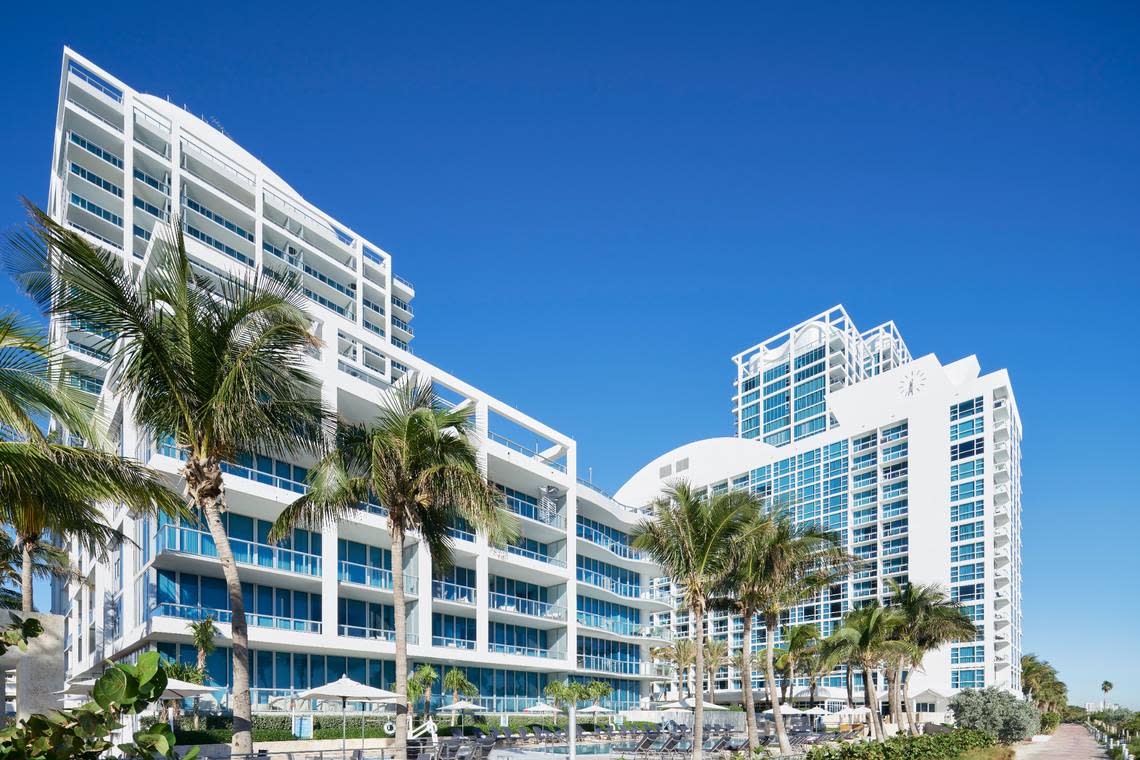South Florida condo-hotel owners have good reason to be angry. Legislature must fix new law | Opinion

- Oops!Something went wrong.Please try again later.
With more than 1.5 million condominium units in Florida – 37% of those in Broward and Miami-Dade counties — you would think that legislation to create more accountability for condo associations and managers would be a huge deal after the collapse of Champlain Towers in Surfside almost three years ago. Yet Gov. Ron DeSantis signed the condo legislation into law on June 14 without any fanfare.
He may have been trying to duck and cover from condo owners’ ire. What began as an effort to ensure the safety of condominium buildings with required inspections and money reserved to do necessary repairs got hijacked by lawyers for mixed-use condo buildings like the Miami Beach hotel and spa Carillon, which was slapped last year with a $16.3 million judgment that the condo association there won.
The new law turns out to be a darn good deal for Carillon. It’s retroactive, which would mean the Carillon can drop its court appeal of that judgment and — presto — the hotel pays nothing; problem solved. But for thousands of people who live in condo-hotels, where residential units and a hotel share space, the problems of keeping sufficient reserves and making repairs on time may just have gotten worse. And Carillon’s condo unit owners are threatening to sue once the law takes effect July 1. Other lawsuits involving condo-hotels and their owners would also be affected.
What condo dwellers and buyers need is clarity and fairness, but the 154-page bill that emerged after a late amendment was tacked on during the 2024 legislative session provides neither.
The new law helps hotel developers in mixed-use buildings to potentially exempt themselves from the state’s new structural integrity reserve study, now required every 10 years. It seems to pass on the cost of any repairs in common areas of hotel-condos to the condo owners. They will have to pay up but do not get to vote on the size or cost of those common area projects, such as swimming pools, elevators, lobbies, load-bearing walls, fire sprinkler systems or anything else costing more than $10,000 to maintain or replace.
At least, that is the interpretation of attorneys who represent condo associations. In a letter to DeSantis, Stevan Pardo, an attorney for the condo associations at the Carillon complex, wrote the controversial legislation “deprives unit owners of their democratic mini-societies and puts them at the mercy of dictatorships run by hotels and developers.”
Ouch — no wonder DeSantis didn’t make a big to-do about signing this new law.
Fortunately, state GOP Rep. Vicki Lopez, the bill’s sponsor whose Key Biscayne and downtown Miami district includes condo hotels, says that’s not what was intended. She believes that “all condo buildings, including mixed-use condos, three stories and above, will be required to complete a structural integrity reserve study by 12/31/24,” she texted the Herald.
She promises that “given the conflicting views, I feel compelled to bring more clarity to this issue in my condo bill next year.”
Good. Because the confusion and likely increase in lawsuits is not what this law should produce.
There are many strong requirements in this new law to make sure condominiums are structurally sound and people aren’t killed in a frightening collapse, as happened in Surfside. Other legislation passed after the collapse requires investing in required reserves to fix structural problems. Repairs can no longer be ignored by condo associations, as too many did in the past when unit owners voted to exempt paying into reserves.
The Legislature needs to fix this bill and clarify that condo-hotels have to take part in those reserve studies every decade. It also should require hotel owners to have reserves for repairs for projects in common areas that are under the hotel operator’s control. Or find some other kind of mechanism that spells out what the percentage breakdown should be for this shared responsibility between the condo association and the hotel operator.
The lesson from the calamity of Champlain Towers, where 98 lives were lost, is that repairs must not be delayed and there must be money set aside to set things right. No exceptions.
Click here to send the letter.

